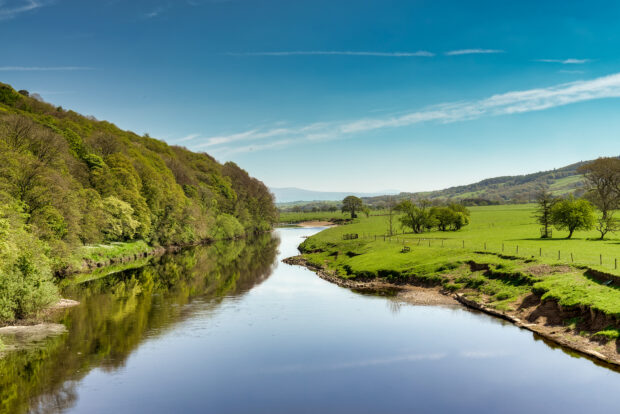
On Monday 20th February, the Environment Secretary Thérèse Coffey set out a clear ask for all water companies in England to share their plans on improving Britain’s water infrastructure.
As part of a drive for better water quality, every water and sewerage company must present a clear assessment and action plan on every storm overflow they operate, prioritising those that are spilling more than a certain number of times a year, and those spilling into bathing waters and high-priority nature sites.
The Environment Secretary also set out more detail on how water companies will face higher penalties that are quicker and easier to enforce, so that polluters are made to pay immediately when damage is caused to our rivers and seas. There will be a public consultation in the spring.
The announcement has been reported today in BBC Radio Four’s Today Programme news bulletins, The Times, The Telegraph, The Independent, i News, Evening Standard and the Press Association.
Regionally, there was coverage in the Yorkshire Post, Jersey Evening Post, Redditch & Alcester Advertiser, St Helens Star, NW Mail, Ayr Advertiser and others.
Environment Secretary Thérèse Coffey said:
People are concerned about the impacts of sewage entering our rivers and seas and I am crystal clear that this is totally unacceptable.
We need to be clear that this is not a new problem. Storm overflows have existed for over a century. The law has always allowed for discharges, subject to regulation. That is how our Victorian sewers are built – wastewater and rain are carried in the same pipe. When it reaches a certain height, it pours into another pipe and into rivers.
And while we have done more about it than any other government – we were the first government to require companies to start comprehensively monitoring spillage so that we could see what was actually going on – there is still significant work to do.
Through the largest infrastructure programme in water company history we will tackle the problem at source, with more investment on projects like the new Thames Tideway super sewer. I am making sure that regulators have the powers they need to take action when companies don’t follow the rules, including higher penalties that are quicker and easier to enforce.
I am now demanding every company to come back to me with a clear plan for what they are doing on every storm overflow, prioritising those near sites where people swim and our most precious habitats.
2 comments
Comment by John W. Baxter posted on
Costa Beck receives the discharge from Pickering waste water treatment works , an almost pristine watercourse until the discharge from Pickering s waste water treatment works enters and becomes diluted. This process symbolises the problem during dry weather and in times of heavier rainfall shows how inadequate the capacity of waste water treatment works are in coping with increased flow volumes to treatment works.
If water companies receive income to treat waste water to a standard found acceptable to the British public for recreation, water extraction for irrigation of crops, watering livestock and drinking, surely we can expect to receive a discharge to our watercourses which reflects the use of modern technology after so many years of management by government and private investors to a standard that reflects us as a society.
I have come to finding it inexcusable on the part of water companies who have invested so much in pursuing the exploitation of biogas to plead that they are dealing with Victorian infrastructure that is not fit for purpose……the time has come to put up!.
Comment by William Hughes-Games posted on
In America they are coming to the realization that an ever greater percent of their water is coming during these extreme rainfall events and that they better find ways of storing this water to use during the ever more severe dry periods between storms. Best if this water is stored underground where it is safe from evaporation and can be accessed, as needed, from wells. A great solution is to have gazzilion dams all through the catchment of your rivers. This not only stores water in the impoundments but also in the surrounding land. However this would cost gazzion pounds. Fortunately there is a furry little solution that only need a riparian zone of deciduous trees and he will do the work for free. Read this.
https://mtkass.blogspot.com/2011/05/erics-beavers.html